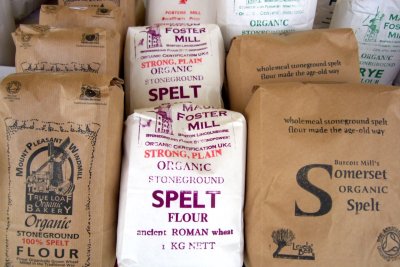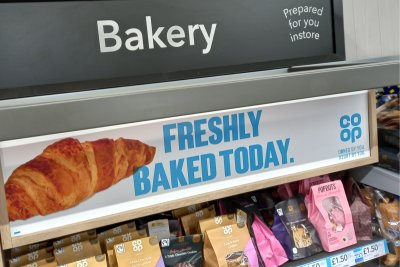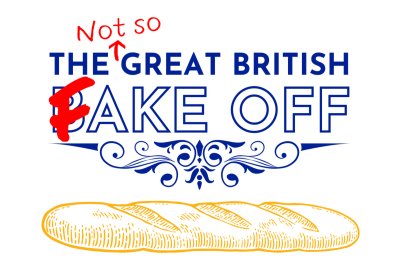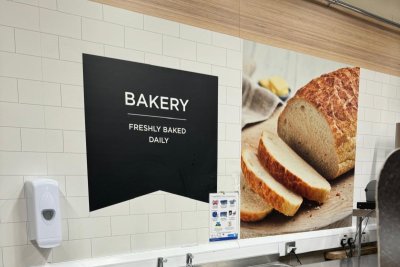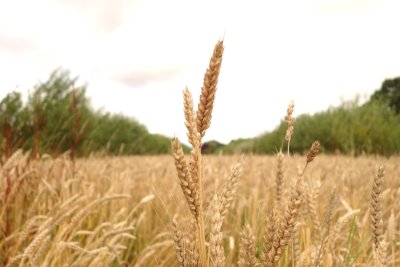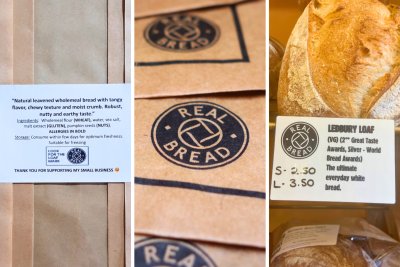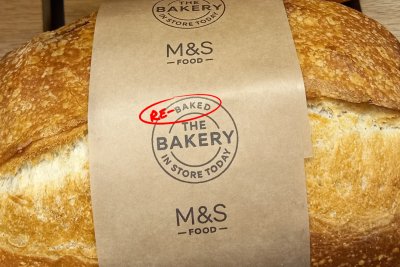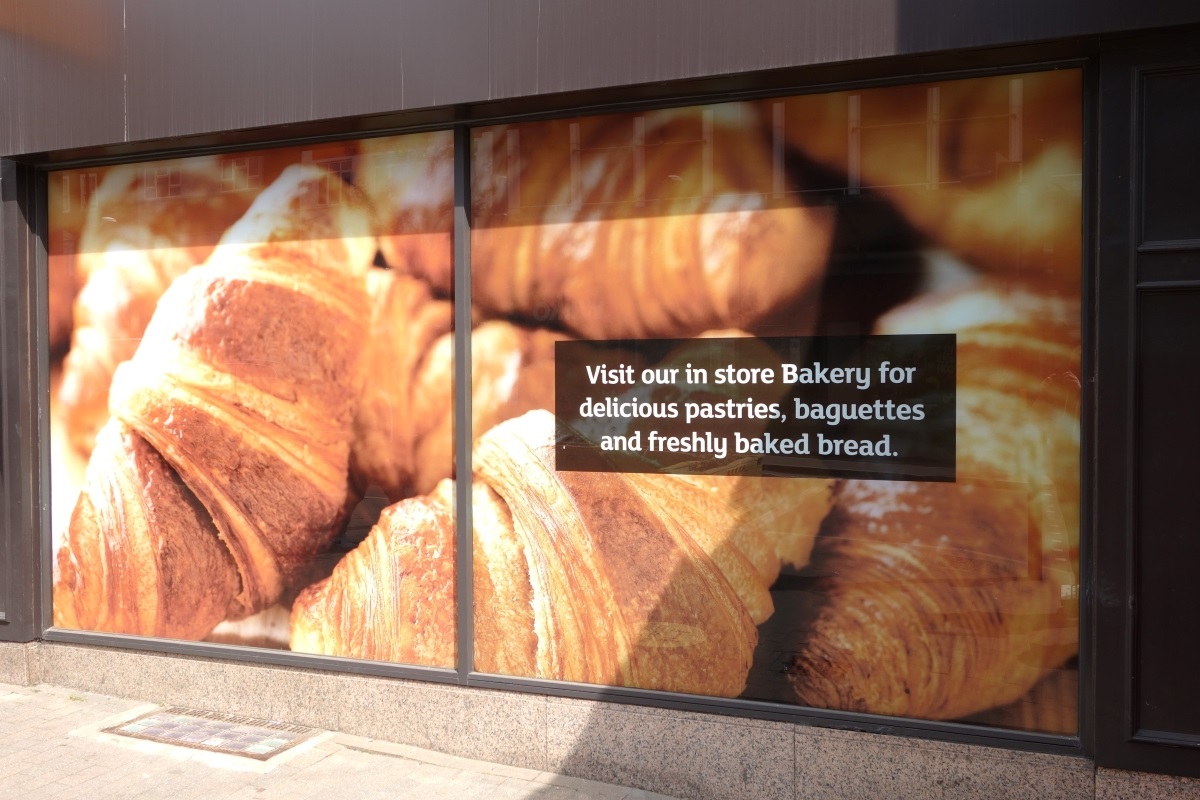
The Labour representative for Easington has dismissed on multiple counts a response from Victoria Prentis, the Under Secretary of State at Defra, to a question he submitted about loaf marketing and labelling legislation.
Mr. Morris’s challenge (below) is the latest development in the Real Bread Campaign’s lobbying for an Honest Crust Act to protect SME bakery businesses and shoppers in general.
What YOU can do
If you haven’t already, please check if YOUR local MP has signed Early Day Motion 1523 and, if not, take our simple action urging them to do so.
If you own a Real Bread bakery, please emphasise the business case for improving the regulations and how the current situation undermines your ability as a local business owner to do even more for the local economy in their constituency and to support quality jobs for their constituents.
We particularly need Tory MPs to demonstrate that this work has full cross-party support.
Support our charity’s work
Neither this action, or any of the rest of the Real Bread Campaign’s work receives sponsorship or grant funding. In order to continue and increase the Campaign’s influence, Sustain needs YOUR help:
Join the Real Bread Campaign Make a doughnation Buy Real Bread gifts
Grahame Morris’s letter
Dear Victoria,
Thank you for your response on consumer rights and misleading marketing.
I note your confidence that consumers are protected from false and misleading marketing and that labelling is effective for people to make informed choices on the food they buy. This simply is not the case.
The Real Bread Campaign has shown that current regulations enshrine restriction to important food information whilst allowing potentially inappropriate and misleading use of common marketing descriptors. This prevents shoppers from making properly-informed food buying choices.
Missing information
Despite more than a decade of lobbying by the Real Bread Campaign, and Natasha’s Law coming into force later this year, it will still be legal for a retailer to sell unwrapped loaves, other baked goods without fully listing ingredients at the time of purchase or point of sale. The need to ask a member of staff or consult a website creates an unnecessary barrier to accessing the information – especially as one or both might not provide an accurate answer. How does this in any way support people’s ability to make adequately-informed food choices?
Misleading marketing
Re-baking frozen or chilled ‘bake off’ products manufactured elsewhere reduces, or removes, the potential number of skilled jobs for people in the local community; uses around twice as much energy as baking a product once; and, as they tend to stale more quickly than bread made from scratch, can increase food waste. Why will Defra not introduce legislation of terms such as ‘baked in store’, ‘freshly baked’ and ‘fresh bread’ so that people know how, when and where a product is made?
In a hypothetical situation, an industrial loaf fabricator manufactures an additive-laden, baker’s yeast-leavened, roller-milled white flour loaf in a large factory overseas, using a ‘no-time’ method and merely a small percentage of wholemeal spelt flour and inert sourdough powder. The product is partly baked, frozen and shipped to a supermarket, sandwich shop, petrol station or other retailer the UK. It may then sit for many months until it is re-baked by a staff member with no bakery experience or training much beyond setting the oven timer. The retailer can then market the product as ‘freshly-baked, traditional, artisan, wholegrain, ancient wheat, sourdough bread’. Do you not agree that this is misleading?
Without legal definitions of many commonly-used descriptors - or even robust guidelines for their use, there is little the Advertising Standards Authority or local authority trading standards departments can do to prevent such marketing. In what way does this protect people from being misled? How does this situation help to build goodwill and trust in British food amongst people in the UK or visitors from abroad?
Real life cases
In 2013 the Real Bread Campaign investigated the use of the ‘healthy halo’ of wholegrain in the marketing of industrial loaves by high profile UK brands. None of the products contained all or mostly unrefined grain ingredients – one loaf was made using as little as 6% wholemeal flour. Will Defra adopt the recent international standard recommendation of a 50% minimum content requirement?
One of the UK’s largest manufacturers has marketed a sliced white loaf using the word sourdough, consisting of a mere 3% dried sourdough starter. Therefore this product would provide none of the known or potential benefits of genuine sourdough bread leavened only using a live starter culture. Despite this, the retailer’s sale price was around 66% more than an otherwise identical regular white loaf in the same range.
In 2016, a company started marketing a packet mix that promised it ‘gives bakers the opportunity to enter this lucrative market without the need to invest in specialist staff’ and the ability to make ‘sour dough’ [sic] with just 60 minutes’ fermentation’, despite noting that genuine sourdough normally requires a ‘bulk fermentation period of up to 24 hours.’ Why will Defra not agree to introducing a legal definition to protect producers of – and people wanting or needing to buy – genuine sourdough bread?
The need to act
I am aware that Defra has previously suggested industry self-regulation as a solution to these issues. Large industrial bakers and retailer monopolise this market. In these circumstances, do you believe any code of practice would protect SME bakers’ interests? It should be noted, SME bakers sustain our high streets and support ore jobs per loaf than industrial bakers.
In the face of multi-million pound marketing campaigns from the multi-billion pound industrial baking and retailing sectors, how will the voice of a lone local baker be heard?
Lastly, Defra has been promising to review loaf labelling and marketing regulations since November 2018. When will this process start and how will SME bakery owners, shoppers and all other interested parties be involved?
Thank you for your response to my parliamentary question, and I look forward to your response to the above issues.
Yours sincerely,
Grahame Morris, M.P.
See also
- Watchdog considering bakery sector investigation
- Calling Britain's bread and small business lovers
- Where's our Honest Crust Act?
- Government commits to Honest Crust Act review
- Loaf labelling and marketing: Real Bread Campaign replies to Defra
- Gove served Honest Crust Act letter
- Real Bread Campaign rejects Gove's ‘accurate and informative’ loaf labelling assurance
- Marketing year-old baguettes as fresh 'wrong' says Real Bread Campaign
- Government plays ‘red tape reduction’ card in response to Honest Crust Act call
- Call on your MP to urge for better loaf labelling laws
- Shoppers being misled by labels claim food is 'artisanal' or homemade
- Prue Leith supports Real Bread Campaign’s Better Bread Britain call to Gove
- Real Bread Campaign urges government to introduce an Honest Crust Act
- Honest Crust Act delegation to Defra
Real Bread Campaign: The Real Bread Campaign finds and shares ways to make bread better for us, better for our communities and better for the planet. Whether your interest is local food, community-focussed small enterprises, honest labelling, therapeutic baking, or simply tasty toast, everyone is invited to become a Campaign supporter.
Sustain
The Green House
244-254 Cambridge Heath Road
London E2 9DA
020 3559 6777
sustain@sustainweb.org
Sustain advocates food and agriculture policies and practices that enhance the health and welfare of people and animals, improve the working and living environment, promote equity and enrich society and culture.
© Sustain 2024
Registered charity (no. 1018643)
Data privacy & cookies
